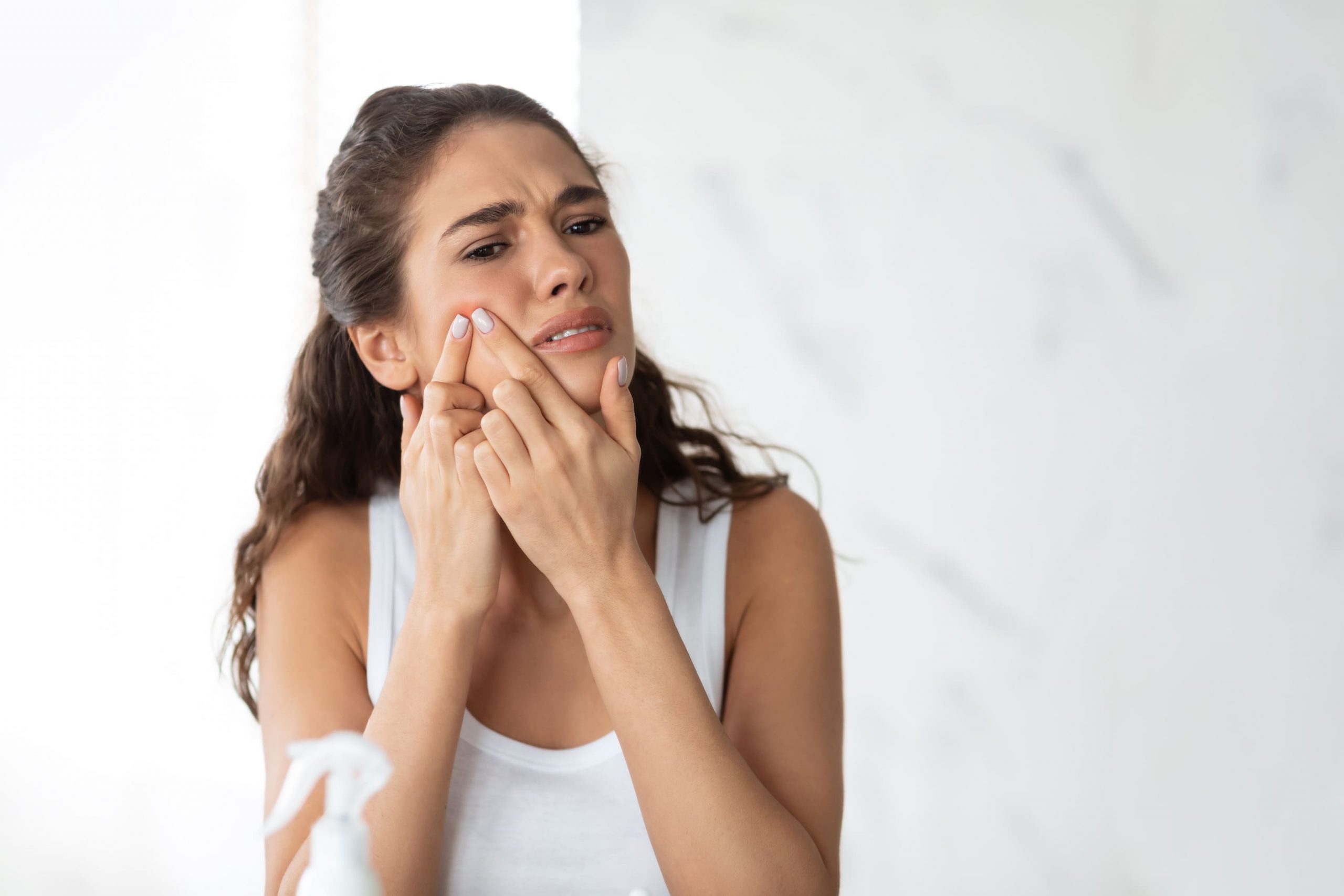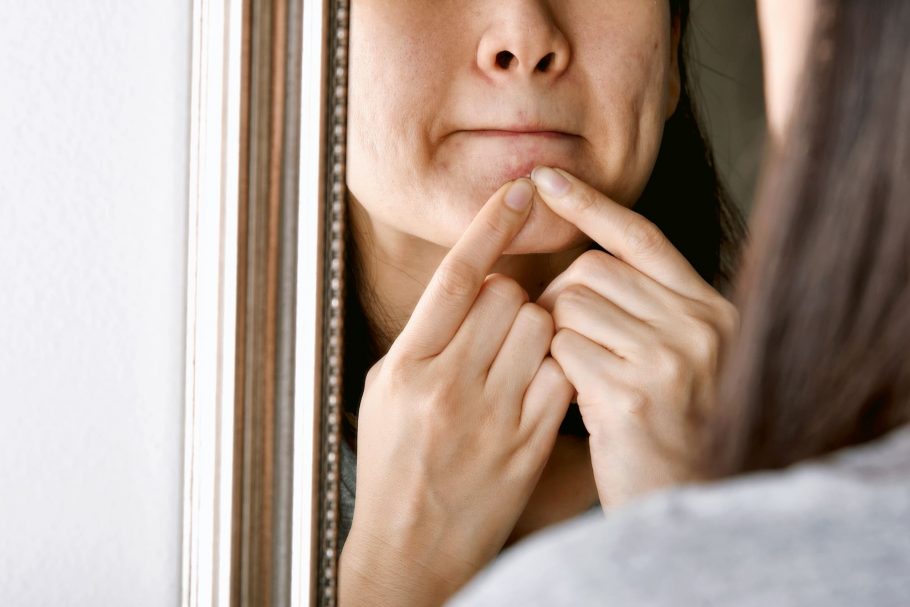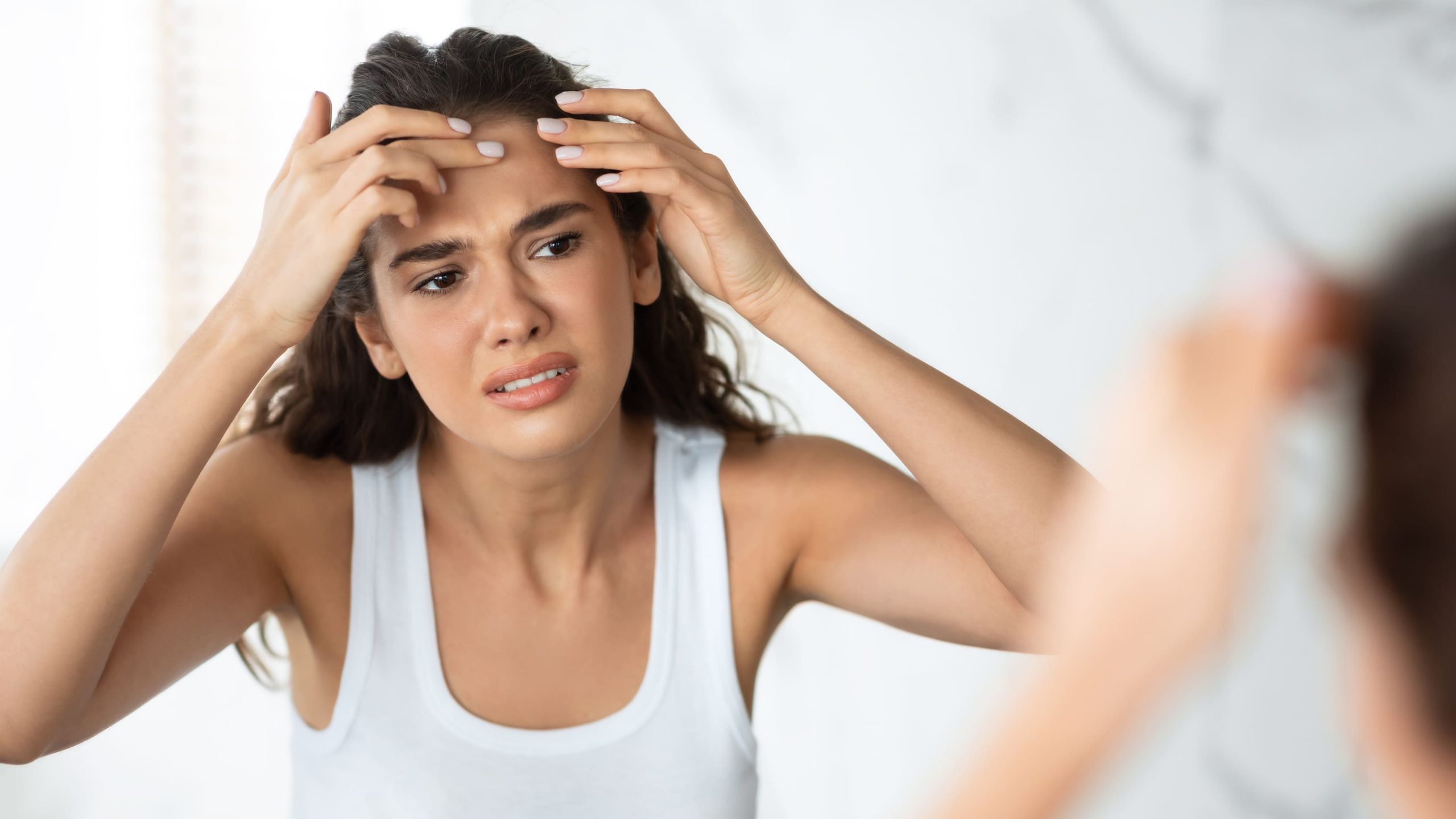Rosacea acne is a very common chronic and often progressive skin condition. This is typically characterised by red flushing of the central face (i.e., nose and cheeks) and is generally accompanied by a stinging or burning sensation. This skin condition can occur in both adults and children of any ethnicity (though rarely in children). Upon realising that you have this condition, it can be a very stressful time and a cause of much anxiety and stress. In that case, you will definitely want to know what causes it, and how it can be treated.
Let’s take a look at some of the key identifiers or rosacea.

How to identify whether you have rosacea acne
Rosacea is fairly easy to diagnose as there are a number of tell-tale signs:
- Patches of rough and dry skin
- Large pores
- Broken blood vessels on the nose and eyelids
- A swollen and bulbous nose
- Bumps on the skin and eyelids
- Problems with vision
- Stinging and burning sensation
- Redness of the cheeks and nose
If you have noticed any of the above symptoms, then it could be that you have rosacea acne and should consult your doctor immediately for further diagnosis and prescribed treatments.
What is the best treatment for rosacea acne?
If you have rosacea, there are a number of different treatments that you can try depending on the severity of your condition.
For mild rosacea:
- Topical metronidazole
- Sulfacetamide/sulphur
- Azelaic
For moderate rosacea:
- Combination therapy with oral and topical treatments
- Metronidazole gel
For more severe rosacea with optical complications:
- Referral to a specialist
Other treatments include:
- Using emollient and noncomedogenic moisturisers
- Mild, fragrance-free soaps
- Skin cleaners with a neutral pH level
- Non alkaline skincare products
- Broad-spectrum sunscreen 9 with zinc oxide or titanium dioxide
- Wide-brimmed hats in the sun
- Avoiding any skincare products containing the following:
– alcohol
– menthol
– eucalyptus oil
– clove oil
– peppermint
– witch hazel
– sodium lauryl sulfate
Best treatment for rosacea pustules?
For rosacea pustules, finding the right treatment should be simple enough. Your doctor will likely prescribe you some oral antibiotics, such as doxycycline for moderate to severe rosacea with bumps, pimples, and pustules. For the more severe conditions that do not respond to any other therapies, then your doctor may end up suggesting that you try isotretinoin.
Rosacea bumps treatment
For rosacea bumps, the treatment recommended may include the following:
- Brimonidine: a gel that tightens blood vessels and reduces redness.
- Metronidazole and Doxycycline: both are antibiotics that kill bacteria in the skin and can bring down both redness and swelling on the face.
- Azelaic acid: this is a type of gel or foam that can clear up any bumps, swelling, and redness.
- Isotretinoin: is an acne drug that can clear up skin bumps effectively. Note, you should not use this if you are pregnant as it has been linked to causing birth defects.
Rosacea pimples treatment
For rosacea pimples, there are a number of treatments that can be used. Some of the more common treatments (besides the oral and topical treatments mentioned above) are:
- Electrocautery: this is an electric current that is used to zap damaged blood vessels and can reduce pimples
- Laser treatment: using intense light to reduce and get rid of blood vessels or pimples
- Dermabrasion: essentially ‘sanding’ the upper-dermal layer of skin
DIY Skincare Treatments for Rosacea
If you have tried many of the above, or perhaps would prefer to try some DIY treatments for rosacea, then there is much that you can try.
First of all, you’ll need to try and find out what it is that is triggering the outbreak and avoid them. For example, your rosacea could be triggered by drinking excessive alcohol. In cutting this out from your life, not only can it help to clear up your rosacea, but your life will improve in many other ways as well.
In any case, you should keep a journal and track activities that cause your flare-ups and work with them. This trial and error approach can be vital in getting to the bottom of your rosacea triggers and thus treating them properly.
Now, what are the more common triggers that should be avoided?
- Excessive sunlight
- Extreme hot or cold temperatures
- Heavy wind
- Stress
- Hot baths
- Spicy foods
- Too much alcohol in your diet
- Overly intense exercise
- Blood pressure medicines, drugs, and steroids that are topical
Here are some tips for trying to reduce the redness of your skin:
- Wear sunscreen (broad-spectrum and SPF 30 or higher).
- Gentle skin care products (avoid any cleansers with alcohol, fragrances, etc.)
- Use moisturiser (particularly in cold weather)
Another recommendation is trying Acne Rosacea cream. A purpose-designed skincare treatment that is highly effective in treating rosacea acne and reducing the symptoms of redness and swelling.
Conclusion
Acne rosacea is a nasty skin condition. Whilst it isn’t necessarily dangerous, if left untreated over time, it can affect your eyesight, which is when it becomes a serious issue indeed. Our advice would be to consult your doctor as soon as you can. That way, they can confirm as to whether or not you definitely do have acne rosacea, and then prescribe the appropriate treatments to help you fight it off.
In any case, we understand that suffering from this skin condition can be the cause of much stress and anxiety. Do not suffer through it alone and never be afraid to seek professional medical assistance before trying an unlicensed treatment of any kind.






